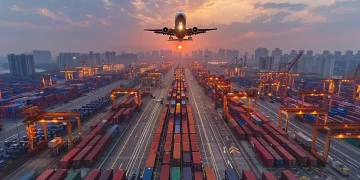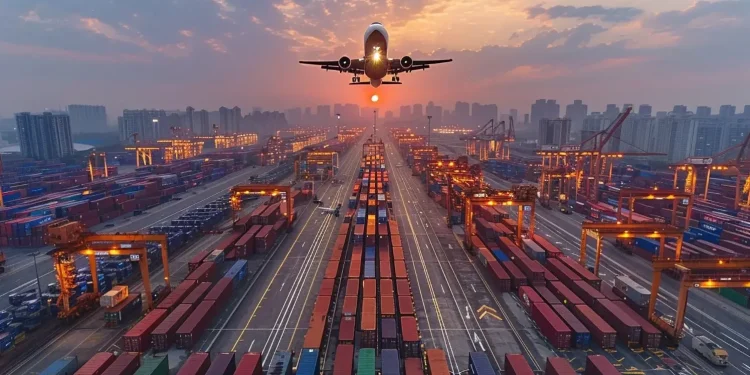By Maria Kalamatas | July 4, 2025
Antwerp – EchoChain Section | The Logistic News
Antwerp, July 4 — Supply chains around the world are undergoing a dramatic transformation. From textiles to electronics, companies are being called upon to offer one thing many never had to before: proof. Not vague promises, but detailed, verifiable data on where products come from, how they’re handled, and who is involved at every step.
“The time when companies could simply say ‘sustainably sourced’ is over,” said Carla Jensen, head of procurement at NordicStyle Group. “Clients, partners, and regulators are all asking for the same thing now: transparency backed by hard data.”
Tracking from Source to Shelf
To meet this demand, many firms are rolling out technologies that allow them to follow a product’s journey in full — from its very beginning to the moment it reaches a customer. That includes blockchain-based logs, QR-coded shipments, and real-time GPS monitoring.
In Belgium, one of the country’s leading chocolate producers is now recording every stage of its cocoa supply chain — from the origin of the beans and fermentation sites to the warehouses and transport routes. This has reportedly strengthened relationships with farmers and improved buyer confidence.
“We used to depend on paperwork and personal relationships,” explained Jean-Baptiste Morel, sourcing lead at BelCacao. “Today, it’s the data that builds the trust.”
Rules Are Tightening
Europe’s forthcoming Corporate Sustainability Due Diligence Directive (CSDDD) is placing new legal pressure on thousands of companies to trace their supply chains. But even beyond compliance, many are realizing the strategic benefits of being transparent.
In a recent case in Canada, a fisheries cooperative was able to recall a contaminated batch of salmon within 15 minutes, thanks to crate-level tracking. “Had we relied on older systems, the delay could have cost us millions,” said Deborah Lam, the group’s managing director.
Transparency Drives Value
Consumer behavior is shifting as well. According to recent findings by CleanTrade Analytics, nearly two-thirds of Gen Z shoppers said they would stop buying from brands that can’t clearly explain their supply chains.
Startups in the traceability space are flourishing. Amsterdam-based FlowTrace, a supply chain tech firm, raised €12 million this month to expand operations across Asia and Latin America.
“Traceability used to be a niche concern. Now it’s central to how companies manage risk, reputation, and regulation,” said Marko van der Veen, FlowTrace’s co-founder.





















